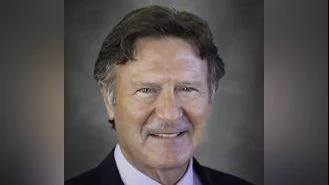Illinois state Sen. Craig Wilcox (R-McHenry) | senatorwilcox.com
Illinois state Sen. Craig Wilcox (R-McHenry) | senatorwilcox.com
Illinois state Sen. Craig Wilcox (R-McHenry) responded to a speech by Chicago Mayor-elect Brandon Johnson to the General Assembly, warning that the mayor-elect's policies leave too many unanswered questions.
“Today, the Mayor-Elect outlined an economic agenda that includes historic new costs, but gave no hint of how he will pay for it," Wilcox said in a recent statement posted to his website. "I have no doubt he will implement his radical social agenda on the backs of businesses. At a time when we should be welcoming businesses to come to the City, Johnson’s proposals will have the opposite effect and will drive businesses and their employees out. Instead of thinking of new ways to hurt employers, the Mayor-elect would be better off directing his attention on real solutions to the crime problem facing Chicago."
Wilcox argued that Johnson's progressive policies will only serve to drive more businesses and residents out of the state, unlike the policies in his district.
"Here in McHenry and Western Lake County we support our businesses, and recognize their value in our communities," he said in the statement. "We do everything we can to help our job creators grow and thrive while always keeping an eye on the overall tax burden."
Johnson, who defeated challenger Paul Vallas in a runoff election last month, said he hopes to have a partnership with the rest of the state.
"I want to take a moment to lay out in a very specific way, in front of all of you, my vision for how Chicago and Springfield can work together to deliver for the people of Illinois," he said in a recent release from The Center Square.
Chicago Police statistics showed that crime increased by 75% under Mayor Lori Lightfoot, and critics have worried that Johnson is too soft on crime, The Center Square reported. After a weekend gathering of teenagers ended with two people being shot, critics were also annoyed by Johnson's comments that putting more teenagers to work was the primary option.






 Alerts Sign-up
Alerts Sign-up